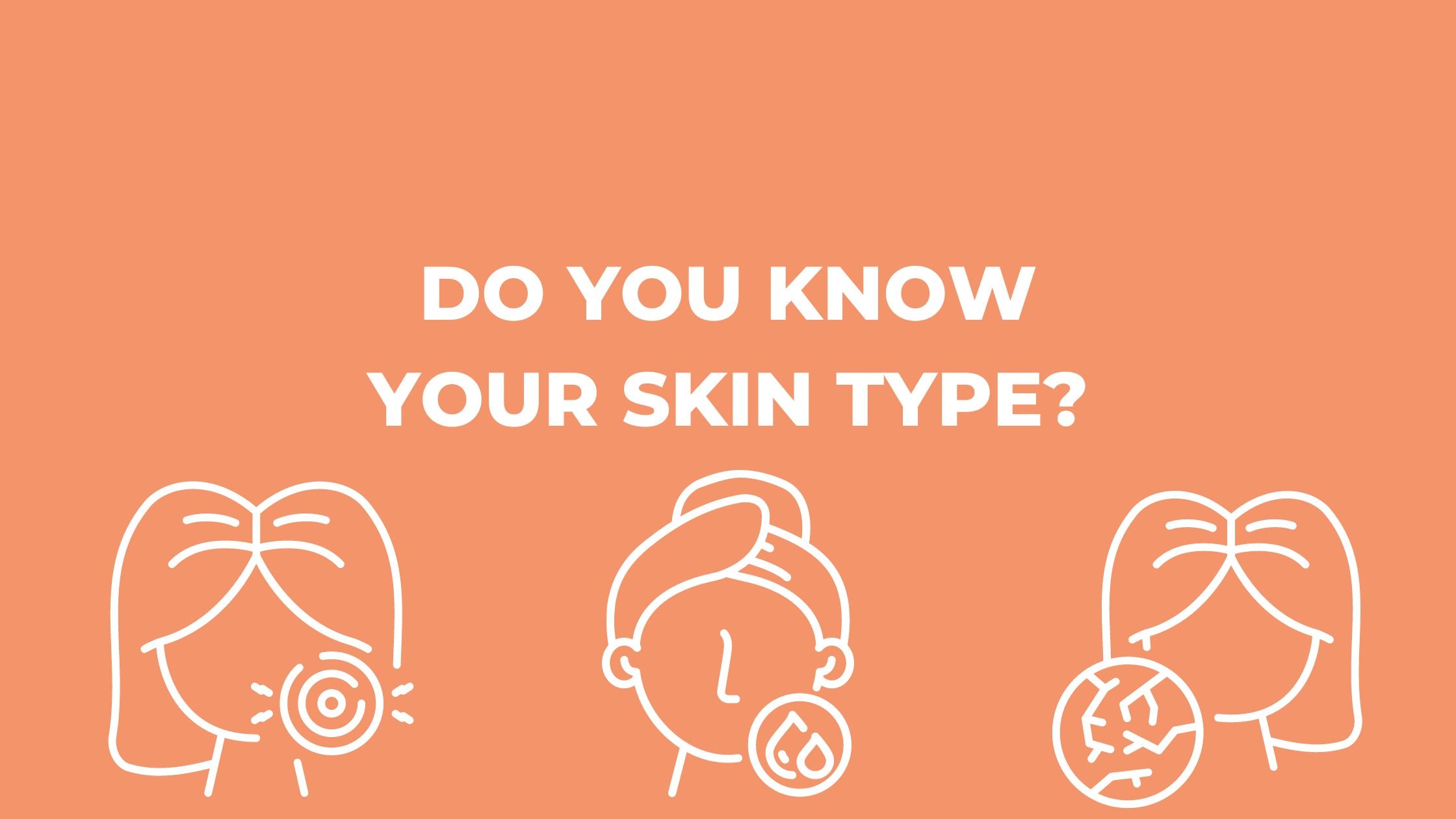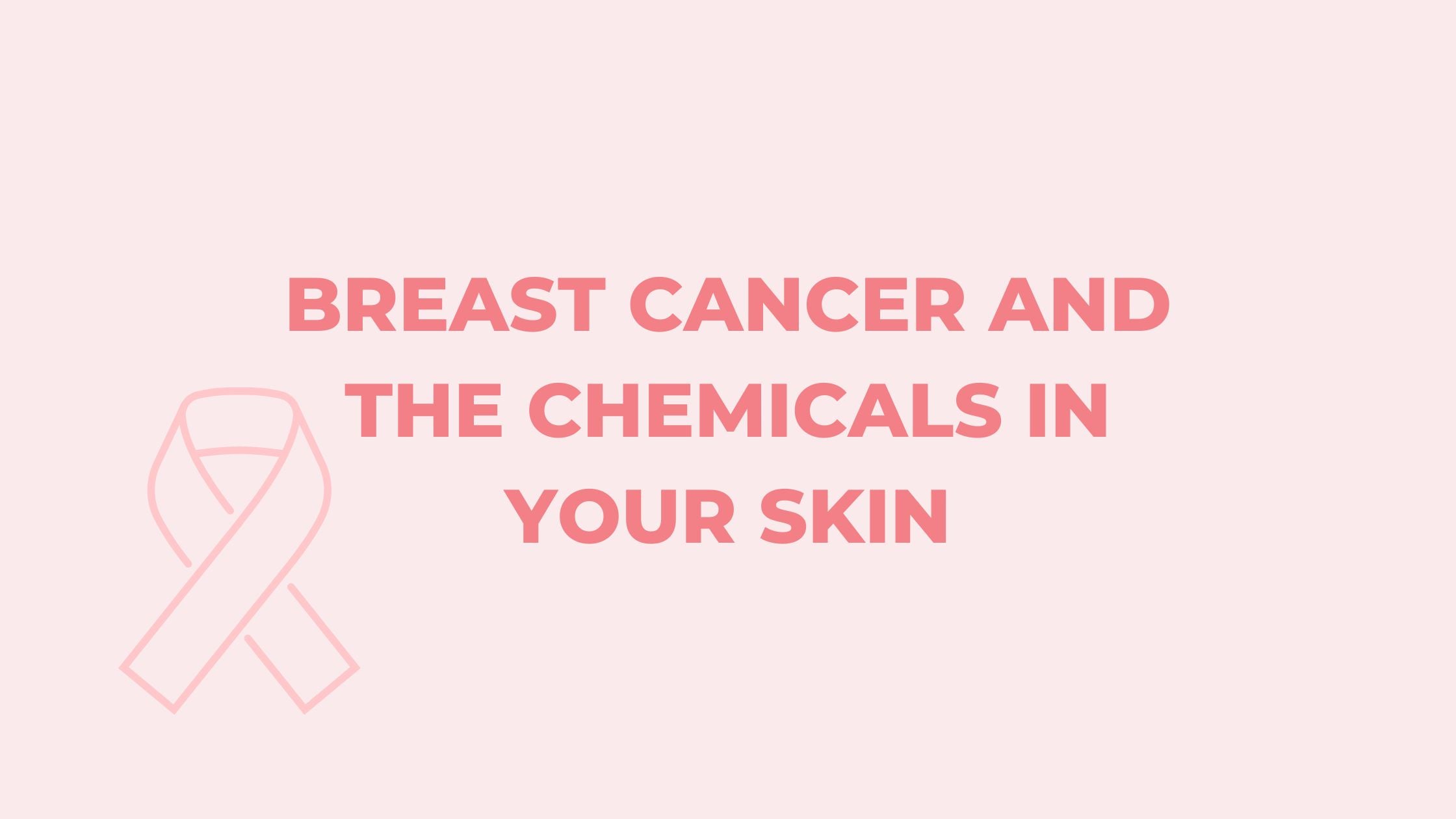
Do You Know Your Skin Type?
Oily, dry, normal, or combo? If you're no skin care expert, and haven't booked a dermatologist appointment in a minute, you may not have a perfect grasp on what your skin type is.
It's important to know your skin type since certain types of skin can be at a higher risk of developing sensitivity, sun damage, and even skin cancer. There are several factors that can affect skin type, including genetics, your age, how you take care of your skin, and water and oil content of your skin cells. The water content will affect elasticity and the oil content shows how soft your skin is.
The skin types are commonly broken up into the following categories:
- Dry Skin
- Oily Skin
- Combination Skin
- Normal Skin
Once you've determined your skin type, you can get a better idea of which skin care products you should use to take care of your skin.
To determine your skin type, the New Zealand Dermatological Society recommends the following test:
- Wash your face, pat it dry, and check back in an hour.
- Make sure not to touch your skin within that hour.
- Blot your nose, chin, forehead and cheeks with a tissue.
- If the tissue has oil on it, and your face appears shiny, you have oily skin.
- If your face feels tight, dry or flaky, with no oil on the tissue, you have dry skin.
- If certain areas of your face show oil on the tissue but not others, you have combination skin.
Normal Skin Type
This type of skin maintains a natural balance, and does not appear too dry or too oily. Normal skin will experience little to no breakouts, flakiness, tightness, or clogged pores, and it will generally look poreless and smooth.
However, just because normal skin is fairly unproblematic, it doesn't mean that people with normal skin can just neglect their skin care regimen.
How to take care of Normal Skin Type:
- Use a gentle non-drying cleanser.
- Never go out without a broad spectrum sunscreen for both UVA and UVB rays protection. Opt for one with zinc oxide and titanium dioxide, which are safe and effective.
- Make sure to clean your face of makeup at bed time.
- Moisturize your skin, and drink plenty of water.
Combination Skin Type
Combination skin is one of the most common skin types. With combination skin type, it's not unusual to notice dry, normal, or oily areas on different parts of the face. This commonly occurs when the T-zone area (the nose, forehead and chin) is oily, but you have dry cheeks. If you have combination skin you may notice blackheads, pores, and shiny areas on your skin.
How to take care of Combination Skin Type:
- Use a cleanser that is best suited for combination skin. This can include a non-soap face bar or a sulfate-free lotion cleanser that is gentle and mild.
- On the oily parts of your skin, use an alcohol-free toner to remove oil, dirt, and makeup and to close pores.
- Always protect your skin from the sun with an SPF 15 or 30. Sunscreen with zinc oxide and titanium dioxide, which are safe and effective for all skin types.
- Use an oil-free moisturizer.
- Use an exfoliating scrub 1-2 times a week if you have combination/oily skin. This will remove dead cells to help clear clogged pores and allow healthy skin cells to come to the surface.
- Use makeup and skin care that are non-comedogenic, meaning that they won't clog pores.
Our Recommendations for Combination Skin
Dry Skin Type
Dry skin is defined by a lack of natural moisture. It will often feel tight and flakey throughout the day. Cracking, peeling, itchy and irritation are common with dry skin type. These conditions may become exasperated with:
- Hormonal changes
- Stress
- Extreme exposure to wind, sun or cold
- Indoor heating or air conditioning
- Medications
- Certain ingredients in skin care or cosmetics, such as plant ingredients, salicylic acid, parabens or sodium lauryl sulfate.
How to take care of Dry Skin Type:
- Use a mild, non-soap cleanser. Cleansers with sodium lauryl sulfate (SLS) or deodorant soaps will be too harsh.
- Scrubbing while bathing or drying can irritate your skin. Gently clean and pat dry with a soft towel.
- A humidifier can add needed moisture to dry skin.
- Use skin care products that are free of botanical extracts and essential oils. These can be harsh and even have side effects.
- Apply a moisturizing cream to help prevent water loss. Shea butter based moisturizers like Cleure Day Cream and Night Cream are a great option because shea butter is a powerful emollient which means it helps soften and moisturize dry skin. Other moisturizing ingredients like sodium hyaluronate and glycerin help trap moisture into the outer layer of skin.
- For very dry or sensitive skin, emu oil is an easily absorbed moisturizing oil that won't leave a greasy feel or irritate skin conditions.
Our Recommendations for Dry Skin:
Oily Skin Type
Your age, hormones and weather may also affect oily skin types. Oily skin produces more sebum (oil) than other skin types which often goes hand in hand with clogged pores and acne prone skin. Oily skin can become worse with:
- Hormonal changes (such as puberty)
- Stress
- High humidity
How to take care of Oily Skin Type:
- With a gentle cleanser, clean your skin morning and at bed time.
- Don't pick or squeeze pimples or blackheads.
- Only choose products that will not clog pores, that is "non-comedogenic".
- Use oil-free moisturizer and cosmetics.
- Use an exfoliating scrub 1-2 times a week if you have oily skin. This will remove dead cells to help clear clogged pores and allow healthy skin cells to come to the surface.
For all skin types, make sure to use skin care and cosmetics that are free of fragrance, soap and harsh preservatives. Don't smoke, get enough rest, and the best time to get the sun's good rays, is before 9 AM.
Our Recommendations for Oily Skin
Is Sensitive Skin a Skin Type?
Sometimes sensitive skin is included in the list of skin types, but your skin can be sensitive while also being dry, oily, or combination. While other skin types categorize based on the skin's oil levels, sensitive skin is characterized by how easily it reacts to stressors like pollution, weather, or even your skin care products.
To care for your sensitive skin, choose products that are suited for your skin type (dry, oily, combo, or normal) and be sure to perform a skin patch test before using anything new so that you can ensure that it won't cause an adverse reaction. You can also be on the lookout for products that are labeled for sensitive skin or that are fragrance free, sulfate free, and free of other common irritants like phthalates, parabens, and essential oils.
Can Your Skin Type Change?
Just because your skin was oily in your teen years, does not mean it will stay that way forever. Skin typically gets dryer over time, but other factors like pregnancy, hormonal changes, diet, climate, and medications can also alter your skin's hydration levels in the long term.
So keep an eye on your skin over time, and if your normal moisturizer isn't quite doing the job anymore, you may need to move on to a more intense cream. Or if you're feeling greasier than usual you may need to cut oil based products out of your regimen.



1 comment
This is such a wonderful blog on Skincare types, thanks for posting it.
Seoul of Tokyo
Leave a comment
This site is protected by hCaptcha and the hCaptcha Privacy Policy and Terms of Service apply.